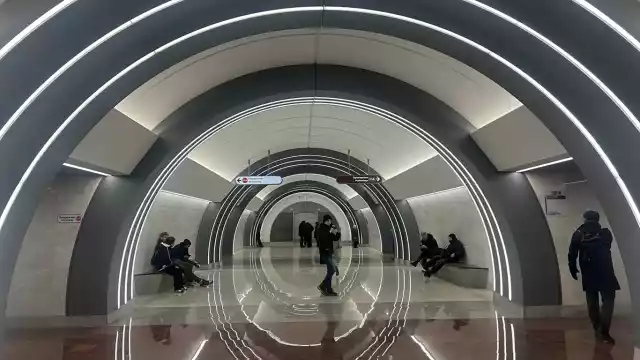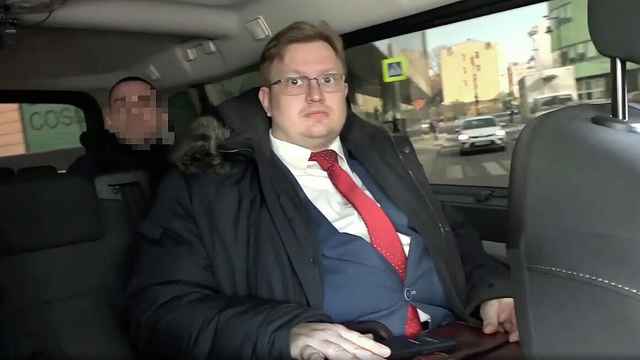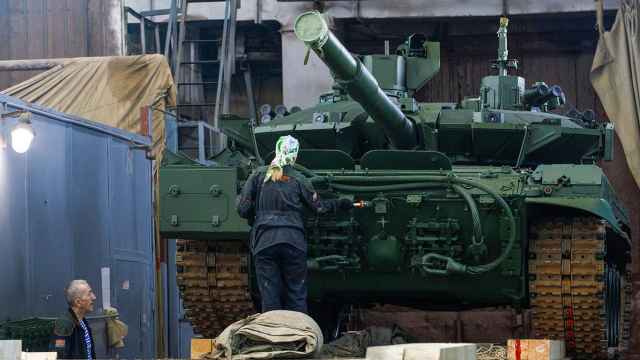BRUSSELS — Ukraine is working to become an energy hub, producing its own gas, developing storage and importing from both the European Union and Russia, Ukraine's visiting energy minister said.
The European Union is pressing for agreements to be sealed with Ukraine by the end of this year as both parties seek to dilute Russian dominance as a gas supplier.
But Kiev is torn between EU cooperation and Russia's promise to cut its gas bills in return for control of its pipelines.
At the end of April, Ukraine's government asked parliament to lift a ban on the privatization of state energy firm Naftogaz, which includes pipelines that pump Russian gas to Europe. That could allow Kiev to sell or lease them to Russia's gas export monopoly Gazprom.
Ukraine's Energy Minister Eduard Stavytsky and EU Energy Commissioner Guenther Oettinger raised the possibility of a three-way relationship at talks in Brussels on Friday.
"Ukraine is really trying to consider its geopolitical situation and to establish a gas hub, so we will be able to do spot purchases in central Europe," Stavytsky said.
Guenther Oettinger said he believed EU firms were willing to buy into Ukrainian infrastructure. He did not name potential investors, but energy firms were at the closed-door talks, including ExxonMobil and Royal Dutch Shell. None were immediately available to comment.
Stavytsky said $550 million was needed to modernize Ukraine's infrastructure, of which Naftogaz could provide $240 million, while the rest would come from loans.
Since late last year, technology allowing pipeline flows to be reversed has allowed Ukraine to import some gas from EU nations, including Hungary and from Germany via Poland. In addition, Slovakia is seeking to develop reverse flow technology, with a test expected this month, Oettinger said.
As the European Commission seeks to expand its internal energy market, it has also been working to develop Ukraine's extensive gas storage, which could ease any supply shortages.
Ukraine already has storage of 31 billion cubic meters and Stavytsky said it was seeking to increase it to 50 bcm, compared with 95 bcm for the European Union as a whole.
In the past, gas flows to the European Union have been disrupted because of Ukraine's quarrels with Russia over how much it has to pay for its supplies.
The European Union depends on Russia for about a quarter of its gas, more than 60 percent of which passes through Ukraine.
All parties are seeking to broaden their options, and Russia has built pipelines to bypass Ukraine.
It wants Ukraine to join its Customs Union, while Ukraine and the European Union are debating a free trade and political association deal.
It could be signed later this year, but the European Union said it is conditional on improved human rights and addressing "politically motivated convictions," a reference to the jailing of former Prime Minister Yulia Tymoshenko, President Viktor Yanukovich's arch rival.
A Message from The Moscow Times:
Dear readers,
We are facing unprecedented challenges. Russia's Prosecutor General's Office has designated The Moscow Times as an "undesirable" organization, criminalizing our work and putting our staff at risk of prosecution. This follows our earlier unjust labeling as a "foreign agent."
These actions are direct attempts to silence independent journalism in Russia. The authorities claim our work "discredits the decisions of the Russian leadership." We see things differently: we strive to provide accurate, unbiased reporting on Russia.
We, the journalists of The Moscow Times, refuse to be silenced. But to continue our work, we need your help.
Your support, no matter how small, makes a world of difference. If you can, please support us monthly starting from just $2. It's quick to set up, and every contribution makes a significant impact.
By supporting The Moscow Times, you're defending open, independent journalism in the face of repression. Thank you for standing with us.
Remind me later.





